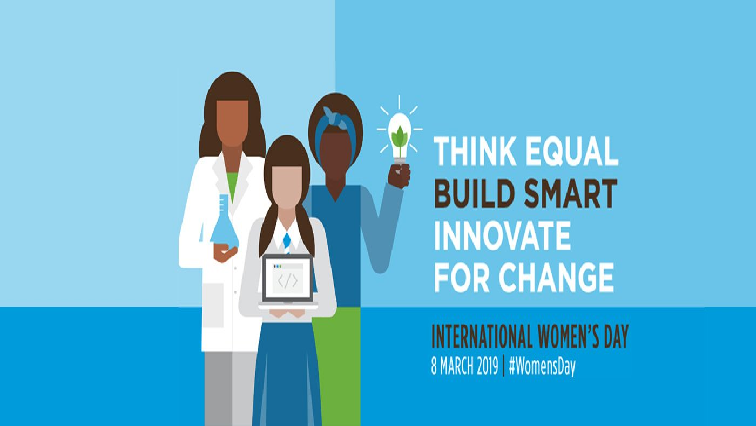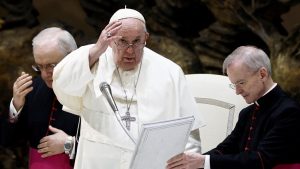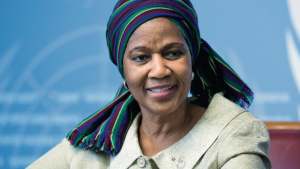“Think Equal, Build Smart, Innovate for Change”. That’s the theme of Friday’s International Women’s Day as policymakers, activists and gender equality stakeholders seek ways to use innovation to boost investment in gender responsive social systems and build public services and infrastructure to meet the growing needs of women and girls in particular.
The day comes just ahead of the start of the annual Commission on the Status of Women at the United Nations in New York, the single largest forum to build consensus on Goal 5 of the Sustainable Development Goals.
Over 9 000 delegates are expected to descend on United Nations Headquarters (UNHQ) over the next two weeks. Starting with International Women’s Day.
Executive Director of UNWOMEN Phumzile Mlambo-Ngcuka says, “The thinking behind the theme captures the 21st century, which is an era of change that is fast, high impact and has capacity to reach even those who will be left behind because they are furthest away. We are however saying that when we innovate, we have to think about those people who aren’t always in the minds of those who innovate, we have to facilitate for women to be part of those who innovate because they will be able to focus on their own problems. If women are doing artificial intelligence, the robots will address the issues that impact on women and we’re trying to showcase the fact that women want to do this work and innovation must speak to women’s issues.”
She says they are seeking solutions that are both simple and complex to meet the needs of women across the globe, particularly as the focus shifts to social protection, access to public services and sustainable infrastructure as part of the Commission on the Status of Women (CSW) deliberations.
“A consideration of policies by governments that ensure that the basic infrastructure that enables women to have a fighting change is seen as a must have in every country because if you talk about access to clean water and sanitation, this has to be seen as a right and it has to be made affordable and free where people cannot afford it at all. I would like at CSW this year, we also make sure that we look at creating specific programmes that look at women in the informal sector who in many countries of the world do not have social protection because social protection is not universal but also they don’t have infrastructure to trade, they don’t even have sanitation facilities where they are running their little businesses.”
Gender activist Dr Lesley Ann Foster is among the thousands attending CSW63. She runs an Eastern Cape based advocacy and empowerment organisation – Masimanyane Women’s Rights International – working to eradicate violence against women while providing them with support.
“Masimanyane Women’s Rights International is looking at systemic change. So we need to be here to hear what our governments are committing to, how they’re engaging with the process of the outcomes document; we want to be sure that our concerns are contained within that document. We are here representing the women from our country and to take back the information to the women from our country so that we can hold our state to account to at a national level for what it has committed to at a global level,” says Foster.
A gathering that often pits government’s against each other with powerful civil society groupings in the mix; particularly on areas of divergence like sexual and reproductive health where conservative and progressive forces often fail to find harmony.
Dr Phumzile Mlambo Ngcuka was asked if the commission was fit for purpose based on its consensus-driven approach to outcomes. This was her response…
“The CSW is a space for contestation, just like the Security Council is, depending on what is happening in the real world, it places itself inside the commission so you have the issues that people are disagreeing or agreeing about out there in the world, playing themselves inside the commission but also there tends to be a lot that people can agree on.”
Innovation by women & girls, for women & girls is at the heart of efforts to achieve gender equality. See how innovation can challenge gender stereotypes >> https://t.co/cvpPziSk8O pic.twitter.com/Yn8VkC7EZU
— United Nations (@UN) March 7, 2019
The 63rd session of the commission runs from 11th through the 22nd of March. The South African delegation is expected to include several ministries.
Work-related gender gaps have not seen meaningful improvement for 20 years, says new @ILO report. But all of us can do something to achieve gender equality: https://t.co/rcygBQ4YQu #WomensDay #ILO100 pic.twitter.com/qAySGnLrxX
— United Nations (@UN) March 8, 2019
On 8 March, International #WomensDay, take a stand with everyone who won’t accept the patriarchal status quo and take action to change what we cannot accept! pic.twitter.com/nbShZi0zJw
— UN Women (@UN_Women) March 7, 2019
Gender equality is a question of power. We live in a male-dominated world with a male-dominated culture. Only when we see women’s rights as our common objective will we begin to shift the balance. https://t.co/2aCSRBdcMj #WomensDay pic.twitter.com/7uL1QbMKe4
— António Guterres (@antonioguterres) March 7, 2019






